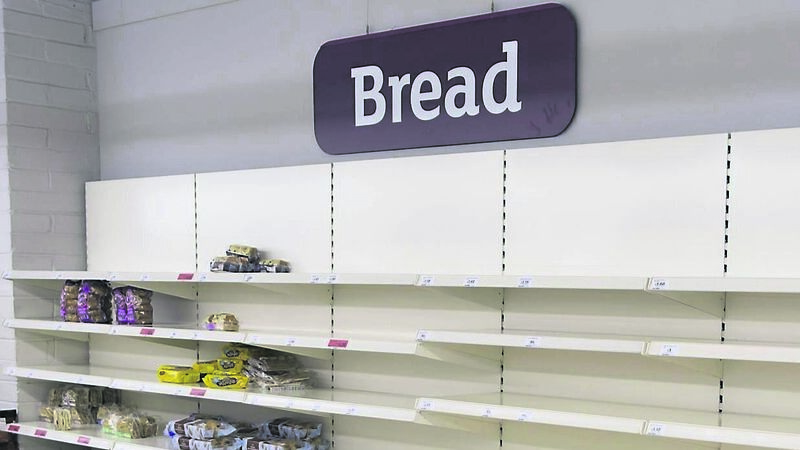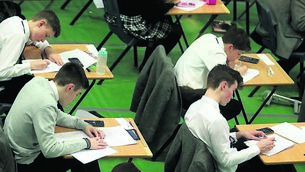We must act now to secure our food supply in changing world

These popular choices have one thing in common. Apart from the splash of milk, they are breakfast staples that rely on food grown in other parts of the world.
According to Kellogg’s, they use “a variety of corn grown by farmers in Argentina, where the conditions are ideal for this crop to thrive”, the biggest corn grower in the world is the USA.
More than 90% of the flour we use to make our daily bread (plus pastries, biscuits and other baked goods) comes from outside Ireland. The majority of the Irish wheat crop is sold as feed grain, used for cattle, sheep, pigs and poultry. Only about 5% of the national crop is classified as ‘milling wheat’ that is turned into flour that goes into a slice of toast.
And despite our deep love of Barry’s Tea and how drinking tea is tied with Irish national identity (go on, go on, go on!), it does not come from indigenous tea plantations on the hillsides of Cork. Rather the far reaches of Kenya, Rwanda, and Uganda.
As a country, we are good at growing grass to feed to ruminants to produce beef and milk. Converting milk into butter, cheese, infant formula and other food ingredients is a multi-billion euro export business. You might have heard the well-worn line that Ireland is ‘feeding the world’ and while our food exports are enjoyed by people around the world, Ireland and the EU rely hugely on food and animal feed imports to keep us fed.
Ireland is a net importer of fruits, vegetables, grains and many other ingredients that are considered staples and the basis of a healthy diet. We spent approximately €882 million on fruit and vegetable imports in 2022. The Irish Farmers’ Association estimates there were 350 growers back in 2010 and we now only have 100 commercial fruit and vegetable growers left in the country.
As we look to a climate-changed future when long-established agricultural practices and ways of growing food will be altered and extreme weather events will cause severe disruption it is time to start thinking about where our food comes from more seriously.
We can’t afford to put all our eggs in one basket and just keep producing beef and dairy while our horticultural and tillage sectors wilt and die.
In the latest episode of RTÉ’s science series , we presenters looked at the issue of food security.
Food security means that everyone has access to sufficient, safe and nutritious food that meets their food preferences and dietary needs for an active and healthy life. Availability and affordability are key.
We know that the price of food in Ireland has increased significantly in the last few years. Research by Barnardos last year showed 1 in 7 parents said had been regularly unable to afford a main meal for their family/children and 1 in 5 stated that at some point in the last year they did not have enough food to feed their children.
‘Money makes the world go round’, but you can’t eat money and, in fact, a safe, reliable, affordable food supply is the foundation of the modern world. We take it for granted until it is disrupted.
Bare supermarket shelves are a rarity, but we have seen recently how natural disasters, extreme weather events, war and conflict and pandemics disrupt food production and distribution around the world, leading to increased food prices and shortages.
Remember when Storm Emma, aka the Beast from the East, paralysed the country with freezing conditions and shops ran out of bread and flour as people bulk-bought and weather conditions made production and distribution difficult?
2023 and 2024 were not good years for growing food in Ireland. Potatoes were left in the field at the end of the season because the fields were too wet to harvest, and the endless rain meant the 2024 crop was planted late. Climate scientists say prolonged wet and rain periods are likely to happen more frequently in the future due to global heating.
Some say our dependence on food imports is a vulnerability for Ireland, while others argue that because the vast majority of Irish food imports are from fellow EU member states, we have nothing to worry about from a food security point of view.
However, around the world we are already seeing examples of how unexpected events can impact food security. In 2023, India banned exports of rice to ensure its population had sufficient supply. The war in Ukraine highlighted our reliance on other countries to supply staple crops. The recent catastrophic flooding in Spain has destroyed thousands of hectares of fruit and vegetable production which will no doubt have a knock-on effect on prices in the coming months. In Gaza, we are seeing the fatal effects of deliberate food supply blockages.
Many countries that currently supply Ireland with food or animal feed will experience changes to their rainfall patterns because of climate change, and this is likely to disrupt food production, particularly in Mediterranean countries, so it is wise to start planning for the future.
Climate change is not the only concern relating to food security. Most of our energy intake in our human diet depends on a really small number of plant species, maybe only about 20 - wheat and maize and rice being particularly important.
Some 75% of global crop diversity was lost between 1900 and 2000, which has serious implications for food security. It’s not good to be reliant on a handful of crop species to feed humanity.
UCD archaeologist and climate researcher Meriel McClatchie, along with her team on the CropRevive project, are exploring how other crops - rye, pea and emmer wheat - were distributed around Ireland throughout the centuries and could possibly be re-introduced to help improve our food security.
Emmer wheat is interesting as we grew it successfully here in the past and if we were able to grow a percentage of bread flour in the form of emmer, it would help improve food security.
Also, pea flour can supplement 30% of wheat flour in bread-making without any change of quality or taste. And peas grow pretty well in Ireland. Teagasc trials of intercropping peas with fava beans are underway with the aim of reducing our reliance on importing soya crops from places like South America.
There are plenty of solutions to adapt the way we grow, produce and eat food, but we must take action now. Especially to ensure we have Irish farmers and growers with the skills and knowledge to grow our food for us in a climate-changed world.







 App?
App?




